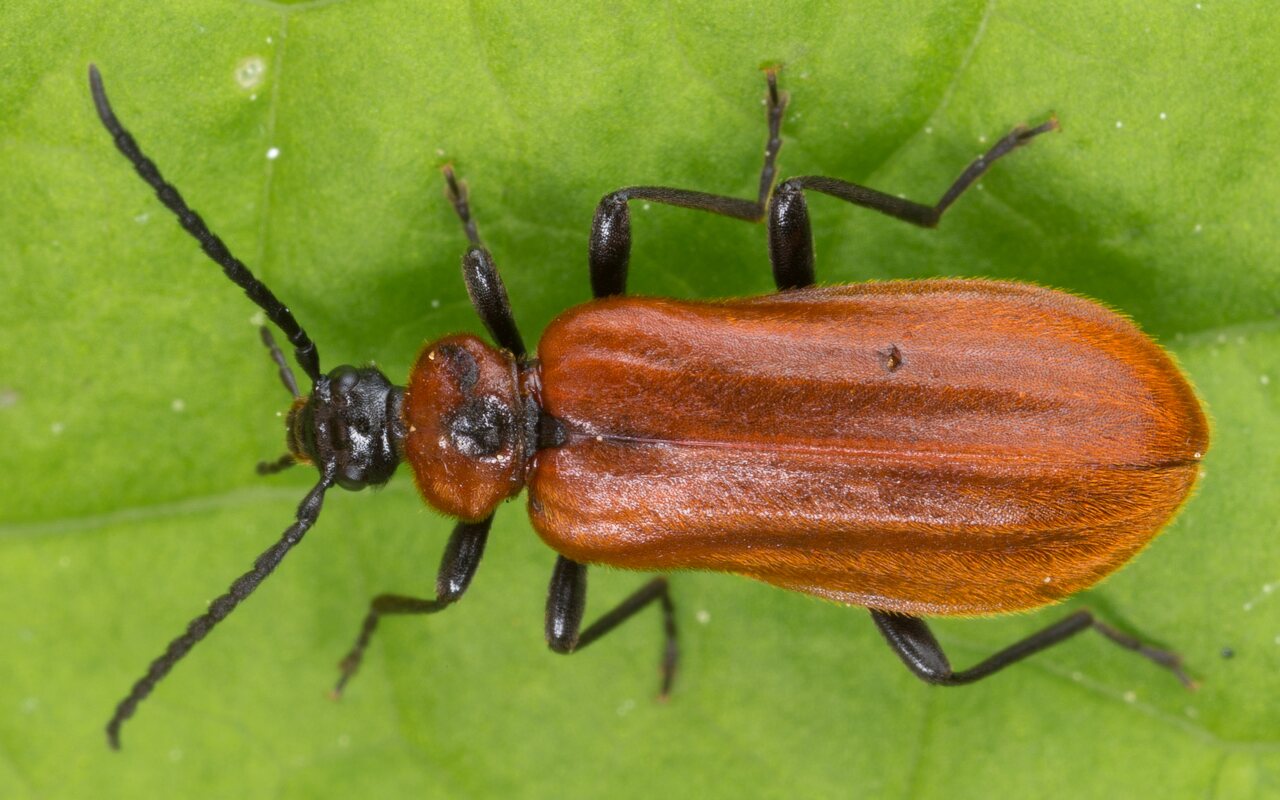
Schizotus pectinicornis female · šukaūsis raudonvabalis ♀
- scarce cardinal beetle
- Orangefarbener Feuerkäfer
- šukaūsis raudonvabalis
- ķemmveida ugunsvabole
- ogniczek grzebykoczułki
ukbeetles.co.uk/schizotus-pectinicornis It occurs locally throughout almost the entire Europe, in the south mostly in mountainous regions otherwise locally common to the far north of Scandinavia.
Females oviposit during May, eggs are laid in small batches among the bark on trunks or recently fallen broadleaf timber, more rarely on coniferous trees, mostly oak, birch, willow and alder. Larvae develop beneath bark feeding on organic detritus and dead insects etc. They also predate other subcortical larvae and at high densities may become cannibalistic; development takes at least two years and they generally occur in numbers, often with members of two generations occurring together. They become fully grown in the spring, by this time their habitat has accumulated a layer of compost which they use to construct a pupal cell beneath the bark, pupation occurs during February or March and adults eclose within a few weeks, they remain in the cell for a week or two to harden and become pigmented and emerge from the bark during the first warm spells of April.
‥
0 comments
Add a comment
Comments